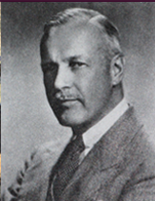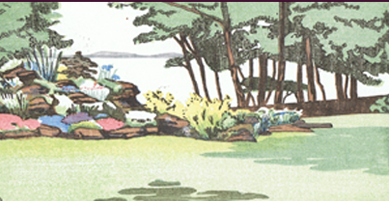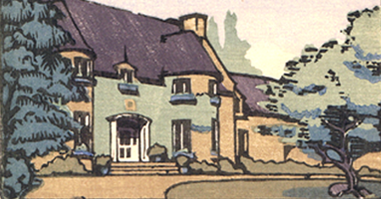 |
|
|||||||||||||||
|
|
 |
|
 |
|
||||||||||||
 |
|
|
||||||||||||||
|
|
|
|||||||||||||||
|
|
|
|
|
|
||||||||||||
|
|
|
|
|
|
|
|
|
|
|
|
|
|||||
|
|
|
|
||||||||||||||
|
|
|
|
|
|
|
|||||||||||
|
|
|
|
|
|
|
|
|
|
|
|
|
|
|
|
|
|
Memoir of Van Horne Memoir 1915, 19 November ,
(for February 1916 article the University Magazine)
Sir William Peterson,
Principal McGill University
Montreal
Dear Sir William,
In reply to your request for information regarding the late Sir William Van Horne, I am naturally flattered that my estimate of his character should be considered of any value but I am also delighted to be able to contribute to anything which may serve to keep his memory alive.
I can only speak of him as a personal friend as I never had business relations with him, and he was very diffident about giving advice in these matters. The difference in our ages was, of course, considerable and would have been, with most men, a certain barrier to intimacy, but Sir William was so keen a student in all matters that he would question and query a younger man with as much interest as if conditions were reversed. Once he found you genuinely interested, his collections, his books and apparently his time were at your disposal. In fact he always seemed to find time for a talk and if ever, of necessity, he kept one waiting the apology was so courteous and ample that no feeling of intrusion was possible. His tastes were simple and he hated ostentation of any kind. H e declared he would have gone to Japan but for a fear the Japanese Government would feel obliged to show him some sort of formal courtesy. A person of the name of Van Horne wrote to enquire if they were related and enclosed an elaborate Coat of Arms by way of introduction. The reply was characteristic -– a crest in return and this time by Sir William’s own hand – The head of a wild-eyed work ox, of the Texas variety, with spreading horns, one of them impaling a patched and tattered coat. Above a horn blaring “dinner’ and below escrilled the motto “Hook it.” It is an irreparable loss that he never wrote his autobiography as he was a splendid story-teller and had a fund of anecdotes which were far more illuminating than a mere dry record of facts. I suspect Sir William to have been, like Macaulay, more of an artist than historian, but the touching of the headlights only added vividness without destroying the truth of the picture. He was at his best when in his own house and if he could be induced to reminisce would talk for hours. About midnight, weather permitting, he was fond of a stroll and was always accompanied by one or more of his collies. The route was generally the same – along Sherbrooke to guy, down to Dorchester and home by Peel St. On these walks he would continue his narrative, often stopping with a laugh, to sidetrack to a joke regarding some character in his story. He would then be extraordinarily pithy, at times conveying a whole sentence by a word. I have often wished for the pen and patience of a Boswell – but poor Boswell would have received scant treatment from Sir William. I remember asking him for his opinion of J. J. Hill, for whom he had the greatest admiration. After thinking for a moment he summed him up as follows: as a competitor in business I wouldn’t believe Jim Hill under oath but if I needed someone to look after my private affairs I’d leave every cent I owned in his hand and not ask for an accounting.”
His interests were very wide and he would discuss the evolution of the Trilobite with as much gusto as the question of paper as a byproduct of the Sugar cane. He had strong opinions regarding the Glacial Theory, and maintained them with an alarming array of personal observations which were completely satisfying, to the lay mind at least. In his younger days he was regarded as an authority on palaeontology of the Central West and his extensive collections of fossils, mostly gathered by his own hand, are now in the Chicago University Museum. He had a wide knowledge of Botany, was an enthusiastic amateur farmer, and an artist of real ability. This sounds somewhat of a hodge podge but Sir William turned from one hobby to another with equal facility and the list is characteristic. Of course, his outstanding passion was unquestionably the building up of a collection of works of art, and it was here he showed himself at his best. A keen student, always ready to learn from others, always ready to impart from his own great store of knowledge. Not content with one view-point alone – going to history, to chemistry, to anything that would help him to better understand the ‘raison d’être’ of his treasures. He was not interested in pictures and pottery as dry collections of so many examples but as living expressions of the people who made them. He did not indulge in higher criticism or attempt to define his own emotions in public but he took the same quality of pleasure in the subtle beauties of a Japanese tea bowl as in the more obvious attractions of a painting by Velasquez. There was nothing selfish in his collecting, and he gave most practical encouragement to others, once he felt their interest genuine. His collecting was extraordinarily varied, models of ships, Indian baskets, pictures, wood carvings, lacquer, glass, etc. etc. In it there were things which would have been rejected by a collector less broad, less of a student – but all was grist
That came to Sir William’s mill. There were some pages from which he learned many things – a trick in drawing, a rare pottery mark, an unusual signature. Much of this knowledge has now been lost though his note books contain a great deal of exceptional value. By these methods Sir William developed his senses to an unusual degree and this was most marked in h is sense of touch. The stories about his ability to identify the Province in which a piece of Japanese pottery was made – by touch alone – are literally true.
Had he lived his catalogues would have been unique as he was engaged in revising his notes, photographs, etc. personally. But the center of interest lay in his catalogue of Japanese Pottery, for he had made watercolours drawings of many of his important pieces. These were done with extraordinary rapidity and with an eye for essentials alone. He had grasped the old Japanese adage “Suggest rather than depict.”
Sentiment made little appeal to sir William, though anyone who caught him stowing away a drawing by his grandson might suspect the contrary. An example will illustrate my meaning – a large quarto, in original binding, a first edition of an eighteenth century classic – quite a nice book – was brought in for his inspection. Sir William took it, turned it over and without a moment’s hesitation demanded why I had bought such a rotten edition. I carefully explained and pointed out the date –said I was week enough to take pleasure in reading from contemporary editions. It was no good, he was almost unkind and called the book heavy, dirty, and badly edited. “Give me a book for use, -- if the margins are too wide, cut them down, if the covers are clumsy, tear them off. If you buy a book as a work of art put it in your cabinet and order a modern edition.”
Had Sir William been asked to compile a dictionary he would have rivaled Dr. Johnson in some of his definitions. “Heredity” was to him a cloak for the modest and a screen for the vicious. “A Genius” one who had been immoderately influenced in some particular direction when young, or by disease. To him the latent faculties were present in us all and only required exercise to be developed. Children are lumps of clay, alike as two peas, but ready to be pressed and modeled, this way and that, by external influences till, baked in the oven of experience, they emerge duly labeled, -- tinker, tailor, journeyman, thief.
Two more incidents may be worth recording, if only to show his attention to detail. He had just purchased a picture of a value which ran into some thousands when he noticed to cord of his eye glasses was broken and being near an optician’s went in and stated his requirements. A moment later he angrily left the place saying they had asked ten cents for an article for which he ordinarily paid five. It was not meanness but a habit of looking at things in relation to their individual worth.
He took the question of Reciprocity very much to heart and for the first time in years went to the Polls to vote against it. I happened to be on my way to vote also and we met as he was returning. He stopped and argued for an hour, finally taking me back to lunch in his eagerness to save one vote for the cause.
These notes do not pretend to be complete or final but may have some value as being scribbled down while my recollections are still very fresh and vivid. Please make what use you can of them and do not spare my feelings or your pen in the process of reconstruction or elimination.
I have taken the precaution of showing a copy of this letter to Mr. van Horne before sending it to you and have received his sanction to let t go as it stands.
Allow me to thank you most heartily for giving me an opportunity to contribute to an article in which I take the greatest interest.
I am,
Sincerely yours,
F. Cleveland Morgan